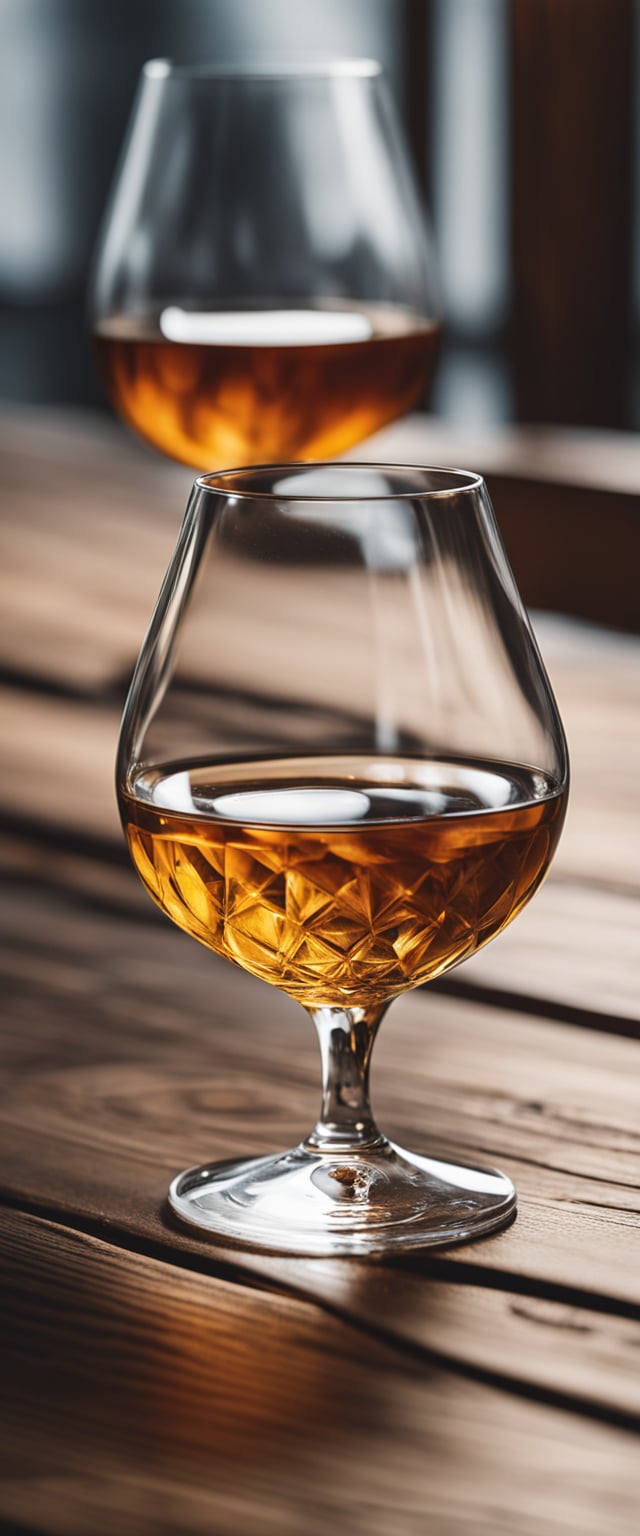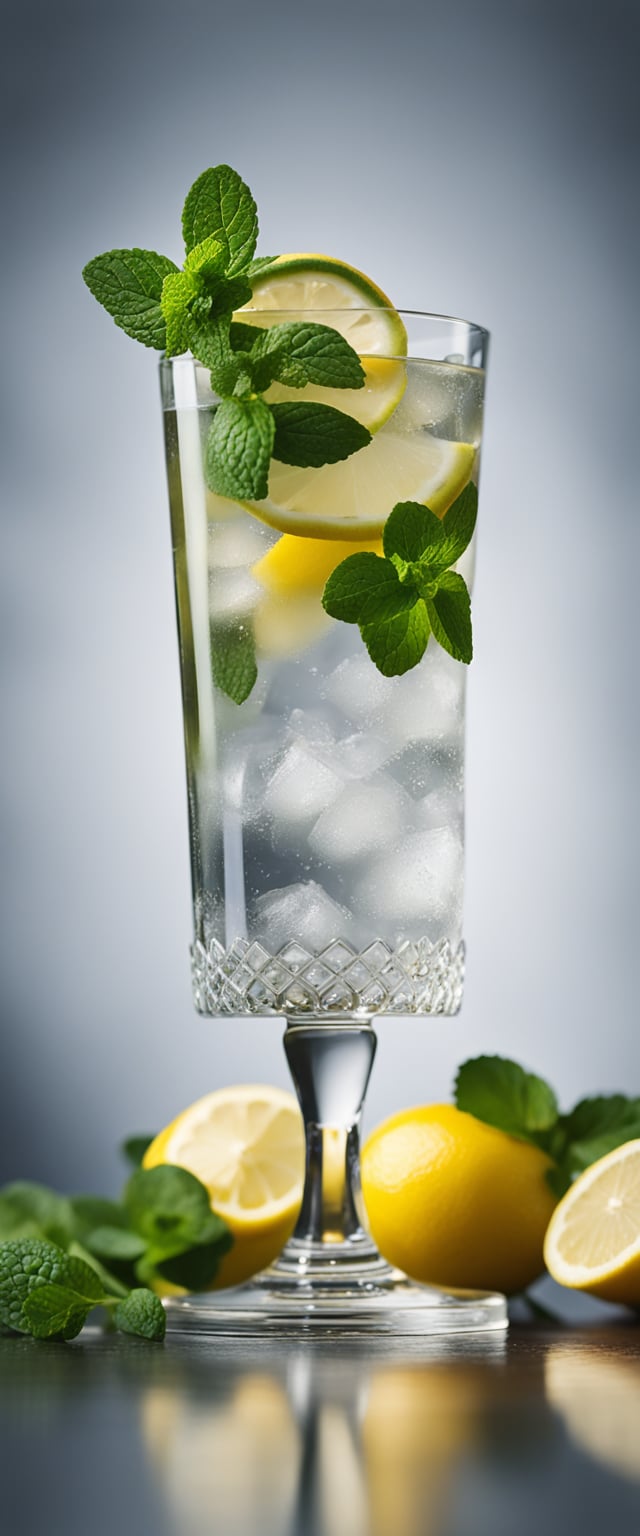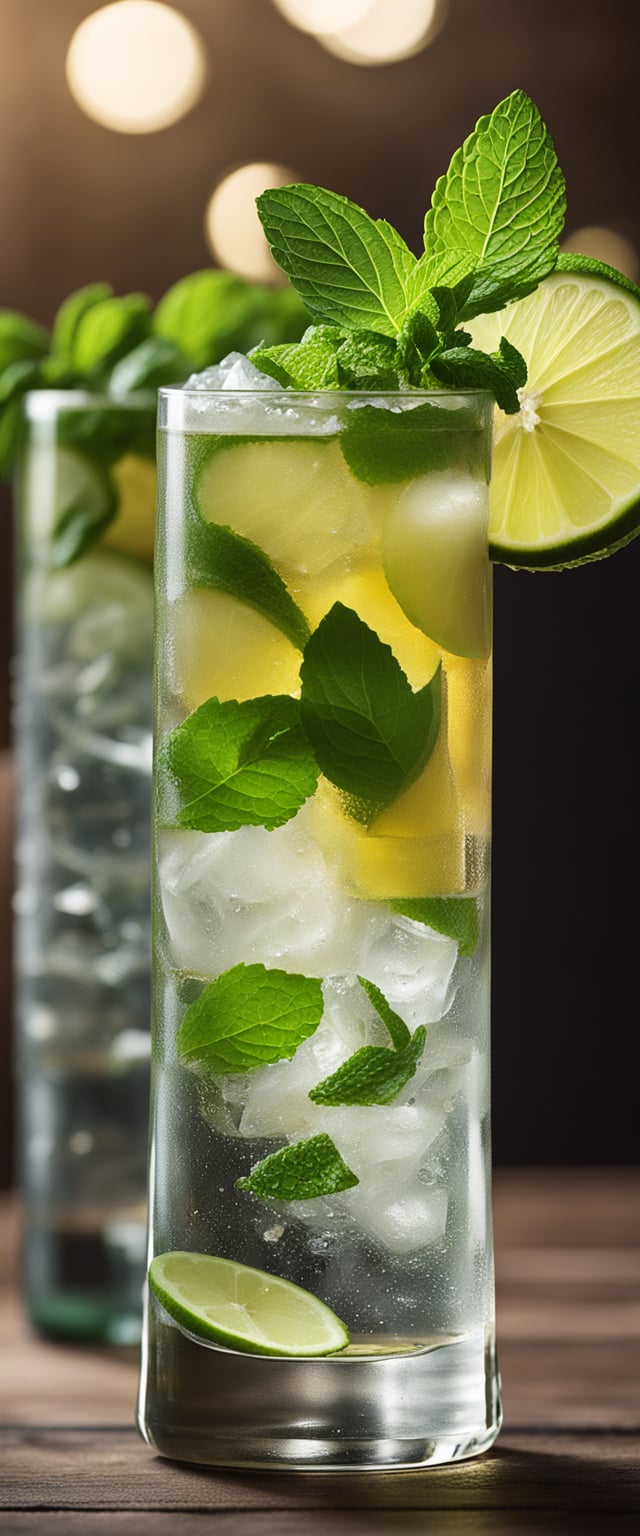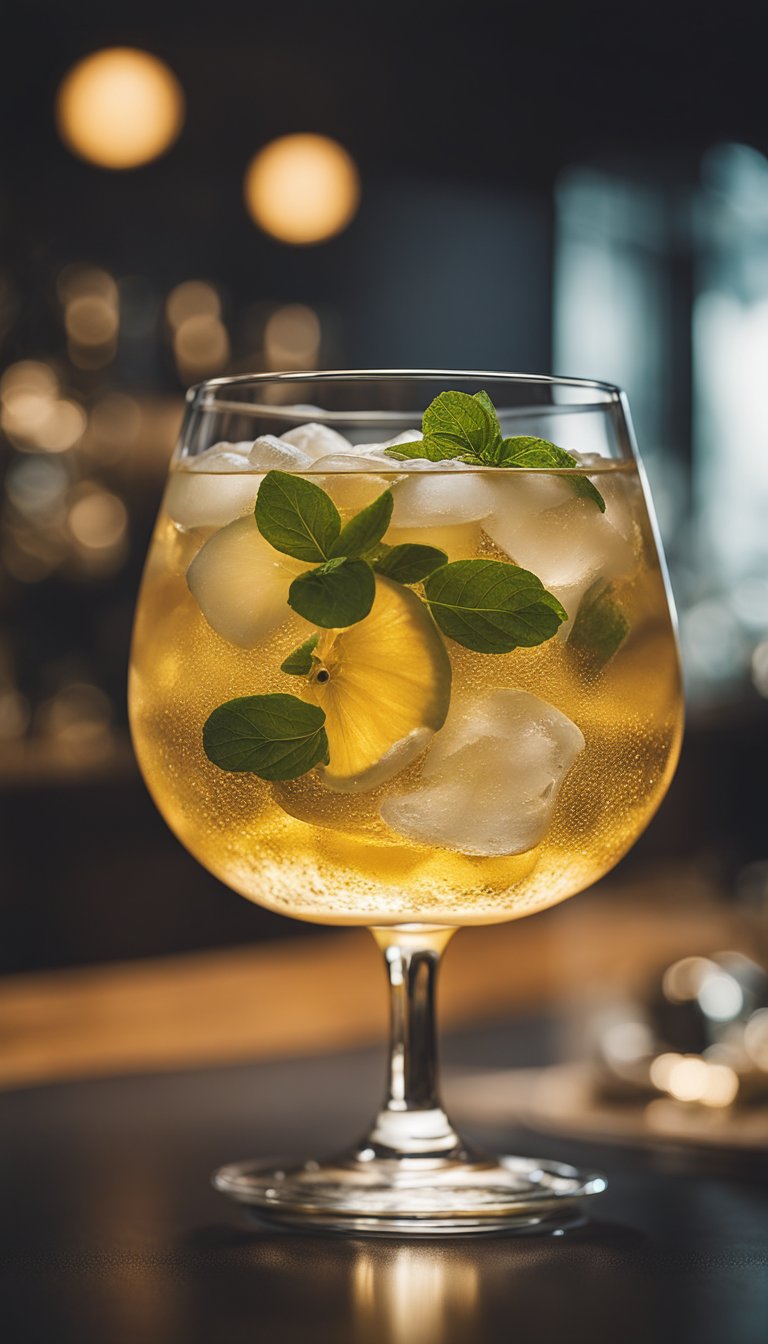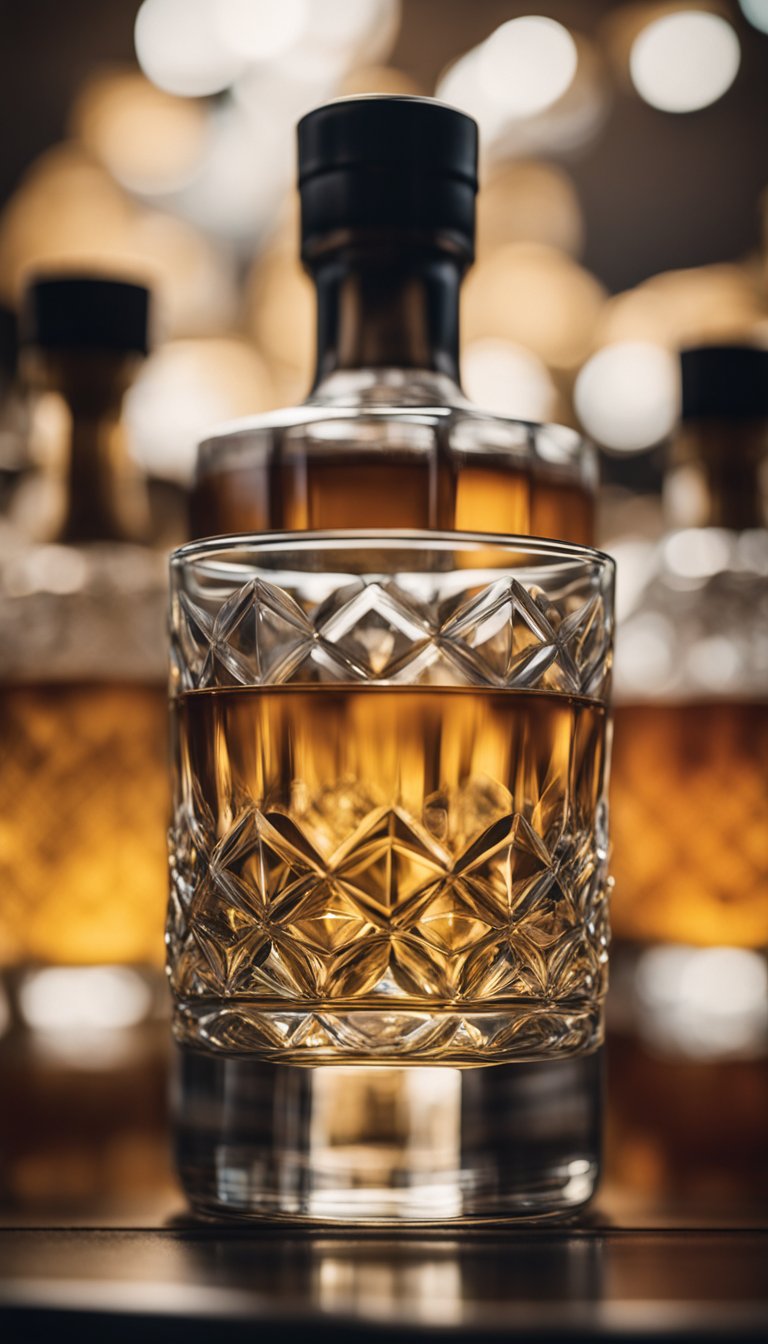Explore the Flavors and Unlock the Flavors: Must Try Alcohol-Free Spirits to make Zero-Proof Cocktails in the UK
Are you eager to set off on a thrilling journey into the world of zero-proof cocktails? If you’re looking for a variety of exciting flavors without alcohol and alcohol, you’re in for an exciting treat. In this collection of blog posts, we’re going to unravel ways to make best zero-proof cocktails made with spirits that are alcohol-free. And that’s not the only thing – we’ve got a deal that’s limited in time that will make your taste buds tingle with anticipation.
It’s the Zero-Proof Cocktail Revolution
Over the last couple of years, the world of mixology is experiencing the world of mixology undergo a major transformation. It’s gone are the days where those who don’t drink could settle for ordinary juice or soda. The zero-proof revolution of cocktails is on the move, and is changing the way we think about mocktails.
The majority of people prefer to enjoy sophisticated and rich flavors without the high of alcohol. It could be due to health issues or the desire to remain on top of things, or simply because of desire for a taste in a non-alcoholic way, the demand for alternatives has exploded.
Alcohol-free spirits stand at the top of the line with an array of flavors and aromas to rival the alcohol-based counterparts. The greatest part? You’ll get to enjoy them with out regrets the next day.
Making Alcohol-Free Spirits
Spirits that are alcohol-free, often referred to by the name of “AF spirit”, are the stars of our program. These drinks are designed to capture the essence traditional spirits without alcohol content. Imagine sipping on one glass of AF whiskey which offers the rich, smoky oak-aged flavor of the authentic whiskey. Or perhaps a gin alternative that boasts the botanical complexity of your favorite gin without the fog that is caused by alcohol.
What’s that stands AF spirits aside from the usual non-alcoholic drinks? This is all in how they distill and infusion. These spirits are expertly made so that they can replicate the flavors and aromas we associate with classic spirits, thanks to a careful selection of botanicals such as spices, herbs, and distillation techniques.
In the sections to follow this article, we’ll go deeper into what’s available in the spirit world that is alcohol-free. We’ll review the brands that are creating a buzz in the UK market and give you insights on their flavor profiles as well as the recommended uses. If you’re interested about the flavor profiles that are waiting for your palate, then read on.
Next Looking into Alcohol-Free Spirit Options
In the following section We’ll be introducing you to a diverse range of spirits that are alcohol-free in the UK. We’ll take you to the world of flavors which can elevate your zero proof cocktails to new levels.
Exploring Alcohol-Free Spirit Alternatives
In our quest to discover the spirit world that is alcohol-free for making amazing zero-proof cocktails the UK we’ve reached a pivotal moment. We’re now ready to explore the vast, exciting field of alcohol-free spirit brands which are making waves on the market. From botanical-infused AF Gins to sophisticated whiskey alternatives you’ll find a variety of options. In this section, we’ll introduce you to several notable brands, and their incredible offerings.
AF Gins: A Symphony of Botanicals
Alcohol-free Gins have been leading the charge in the world of alcohol-free spirits due being able to capture the complexity of traditional gin. Here are some manufacturers that’ve brought AF Gin to new standards:
1. Seedlip
Innovative and Bold
Seedlip is often thought of as”the pioneer” of the alcohol free spirits movement. Their line of AF gins includes “Grove 42,” “Garden 108,”” and “Spice 1994.” Each variant is meticulously crafted in order to recreate the taste from traditional gins. aromatic plant-based ingredients taking the centre stage. “Grove 42” has citrusy aromas “Garden and 108” is a refreshing herbal drink, and “Spice 94” offers warm and spicy undertones.
Recommended Serve: Seedlip AF gins are best enjoyed with premium-quality tonic water, and garnished with citrus peel along with fresh or dried herbs.
2. Ceder’s
Elegance Every Time You Sip
Ceder’s offers a variety of AF Gins that are inspired by sparkling, clear waters in the Cederberg Mountains in South Africa. With variants like “Crisp,” “Wild,” and “Classic,” Ceder’s provides a refreshing and sophisticated AF Ging experience. “Crisp” is light and aromatic “Wild” adds a touch of Swedish in its design, while “Classic” will capture the essence of classic gin.
Recommended Drink: Try Ceder’s AF Gins along with your preferred tonic water, and garnish with cut cucumber slices or a sprig of rosemary.
Af Whiskeys A Little of Elegance
For those who savor the depth and complexity of whiskey AF alcohol alternatives to whiskey risen to the challenge. These brands provide AF whiskeys that have rich oaky flavor without alcohol.
1. Ritual Zero Proof
Beautifully crafted
Ritual Zero Proof offers an AF whiskey alternative that has been praised due to its authenticity. The blend is crafted with American oak, Ritual Zero Proof’s whiskey substitute gives the warmth of classic bourbon, but with the aroma of vanilla, caramel, and oak.
Recommend Serve Drink Ritual Zero Proof’s whiskey replacement in classic whiskey cocktails, such as Old Fashioned or Manhattan.
2. Stryyk Not Gin
Whiskey with a Twist
Although most of the time, it’s known for its AF gin, Stryyk also offers an AF whiskey alternative that’s well worth considering. With a combination of warm spice and oak aromas, Stryyk’s whiskey alternative is a versatile option to add to your zero-proof cocktail arsenal.
Affordable Serve Employ Stryyk’s whiskey substitute in create unique, proof-free variations of whiskey-based cocktails, like Whiskey Sour, or Mint Julep.
What’s Next: Designing Your Zero-Proof Masterpiece
After being introduced to some extraordinary spirits that are alcohol-free, you’re ready to start the zero-proof adventure of cocktails. In the coming section, we’ll dive into how to make Zero-proof cocktails which showcase the distinctive flavor profiles of these spirits. Be ready to shake, stir, and enjoy!
Next up: Crafting Zero-Proof Cocktails using AF Spirits
In the upcoming section we’ll share with you the best suggestions and mouthwatering recipes to creating zero-proof cocktails that impress your taste senses. Keep an eye out!
Exclusive Direct Ordering: Choose Swedish Distillers for Your Non-Alcoholic Spirits Needs!
The art of making Zero-Proof Cocktails made with alcohol-free Spirits
Welcome back to our journey into the intriguing the world of non-alcohol spirits and their roles in the creation of exceptional zero-proof cocktails. In the previous chapters, we’ve delved into the realm of AF whiskeys and gins, featuring the top brands and their amazing products. It’s time to put on our apron and make some noise as we learn the art of crafting drinks that are zero proof, allowing these spirits to shine.
The Art of Mixology: Crafting Zero-Proof Masterpieces
Mixology is an art form and the art of making zero-proof cocktails is no different. In the absence of alcohol, it doesn’t translate to a loss of flavor or sophistication. Actually, it’s an opportunity to expand your tastes and try out exciting ingredients. Here’s how you can be a top mixologist, with no-proof ingredients:
1. Balance is key
The foundation of a great cocktail, alcohol or not the key ingredient is the balance. It is important to find the ideal harmony between bitter, sweet, sour and savory ingredients. Here’s a formula to get you started:
- Base Base alcohol-free spirit such as an AF gin or whiskey alternative.
- Sweet Incorporate a sweet element such as simple syrup, fruit juices or flavored syrups.
- Sour Add a sour component, such as citrus juice (lemon, lime) or vinegar.
- Bitter Bitters and herbal liqueurs can add complexity and depth.
- Aromatic Garnishes such as herbs, spices, or fruit peels are a great way to enhance the aroma.
2. Play around through Flavor Combinations
One of the best parts of zero-proof mixology is experimenting with new flavor combinations. For instance, pair a herbal-forward AF vodka with elderflower syrup and a splash of grapefruit for an energizing and refreshing cocktail. For a more sophisticated drink, try an AF whiskey substitute with muddled berries and one or two drops of thyme for an earthy and fruity blend.
3. Texture Matters
Take note of the texture of your cocktail. Some drinks benefit from being shaken vigorously by ice to make a refreshing and frothy finale, whereas other drinks require a gentle stir to keep the clarity and elegance.
4. garnish for Impress
Don’t think about the potential of garnishes. The right garnish choice not only enhances the visual appeal of your drink but can impart subtle aroma and flavor. Think of citrus swirls, herbs, edible plants, or even an addition of ground spices.
Three Cocktails You Must Try Zero-Proof
Now that you’re well-armed with the knowledge of mixology, we can dive into making three delicious Zero-proof cocktails using the alcohol-free spirits we’ve explored earlier.
1. Crisp & Clean AF Gin Fizz
Ingredients:
- 2 oz Seedlip Grove 42 (or similar AF gin)
- 1 oz freshly squeezed lemon juice
- 1/2 oz simple syrup
- 1 egg white (optional for the frothiness)
- Soda water
- Lemon twist for garnish
Instructions:
- Dry shake (shake without an ice cube) the Af gin, lemon juice, simple syrup, and egg whites for about 15 seconds, allowing froth to form.
- Add ice and shake for another 15 seconds.
- Strain into a chilled glass topped with ice.
- Serve with soda water, then gently stir.
- Garnish with a lemon twist.
2. Smokey Spice AF Whiskey Sour
Ingredients:
- 2 one ounces Ritual Zero proof Whiskey Alternative (or similar Whiskey AF)
- 3/4 oz freshly squeezed lemon juice
- 1/2 2 oz honey syrup (mix equal parts honey and hot water)
- 1 dash of aromatic bitters
- Smoked sea salt and some lemon wheels for garnish
Instructions:
- In a shaker combine the AF whiskey the lemon juice, honey syrup, and bitters.
- The shaker should be filled with ice and shake vigorously for approximately 15 seconds.
- Strain into a rocks glass filled with the ice.
- Garnish with a sprinkling of sea salt smoked and the lemon wheel.
3. Summer Breeze Ceder’s Cooler
Ingredients:
- 2 oz Ceder’s Crisp (or similar AF gin)
- 3/4 oz elderflower syrup
- 1 oz freshly squeezed grapefruit juice
- A sprig of fresh thyme to add a garnish
- Grapefruit wedge for garnish
Instructions:
- In a shaker, mix the AF gin, elderflower syrup as well as grapefruit juice.
- Fill the shaker completely with ice. Then shake it vigorously to cool.
- Strain into a tall glass topped with an ice.
- Sprinkle with a sprig fresh thyme or a grapefruit wedge.
What’s Next: Elevating Your Zero-Proof Cocktail Game
Now that you’ve got the art of making zero-proof cocktails with AF spirits You’re now ready to experiment with new techniques and imaginative recipes. In the next part we’ll discuss expert mixology strategies and present unique zero-proof cocktail recipes that will help you improve your home bartending abilities.
**Next up: Advanced Mixology Techniques
Make Your Mixology Zero-Proof: Innovative Techniques and New Recipes
In our trip through the captivating world of alcohol free spirits and zero proof cocktails, we’ve already covered the basics of mixology, and made some delicious AF concoctions. Now is the time to elevate your zero-proof mixology game through exploring cutting-edge techniques in the kitchen and making innovative recipes that will impress your guests. You can also elevate the quality of your cocktail.
Mastering Mixology: Going Beyond the Basics
Before we go into the more sophisticated techniques, let’s recap the basic concepts of mixology:
- Balance The perfect balance of sweet, sour, bitter, and savory elements is the basis of any delicious cocktail.
- Experimentation Explore your creativity by exploring unique flavor combinations and ingredients.
- Texture Check the textures of your drinks Some cocktails are best shaken up for frothiness, whereas others benefit from gentle stirring.
- Garnish Do not underestimate the power of garnishes in enhancing appearance and aroma.
Now, let’s bring your mixology skills to the next level.
1. advanced Garnishing Techniques
Although we’ve discussed garnishes before advanced techniques for garnishing can transform a great cocktail into an art piece. Here are some tips to think about:
- dehydrated citrus Wheels: Cut citrus slices (lemon lime, orange,) to use to create visually beautiful and fragrant garnishes.
- The Flaming Citrus Peels Flaming a citrus peel in your cocktail for a dramatic burst of aroma. Use your lighter in a controlled manner.
2. Homemade Thermos and syrups
You can take your mixology further by making the syrups, infusions and other ingredients you want to make your own. Here are a few ideas:
- Herb-infused Syrups Create unique syrups by infusing simple syrup with herbs like basil, rosemary, or lavender.
- Spiced Syrups Make your own spiced syrups by using ingredients like cinnamon, cardamom, or star anise.
3. Aromatics and Smoke
The addition of a smoky component or unique aromas can bring an element of complexity to your cocktails:
- Smoke Cloche Make the investment in an smoke cloche to flavor your cocktails in smoky flavor. Set a smoldering wooden chip inside the cloche just before serving.
- Aromatic Mists Make use of a small spray bottle to mist aromatic essences, such as lavender citrus, or rose over your drinks.
4. Layered Cocktails
Cocktails that look stunning and visually appealing by carefully pouring the ingredients over the back of a spoon or using special glassware. Explore the different densities and colors in order to create striking effects.
Innovative Cocktail Recipes that are Zero-Proof
Now, let’s apply these new techniques to apply to some creative cocktails that are completely foolproof.
1. Mystic Garden Elixir
Ingredients:
- 2 oz Ritual Zero Proof Gin (or similar AF gin)
- 1/2 oz rosemary-infused simple syrup
- 1/4 Oz lavender mist
- Lemon wheel dehydrated for garnish
Instructions:
- Fill a mixing glass with an ice cube.
- Pour in the AF the gin and simple syrup infused with rosemary. Stir gently to chill.
- Pour the drink into a chilled glass.
- Lavender essence mist over cocktail.
- Garnish with a dehydrated lemon wheel.
2. Campfire Reverie
Ingredients:
- 1 1/2 oz Ceder’s Crisp (or similar AF gin)
- 1/2 oz spiced cardamom syrup
- Smoke cloche for hickory chips
- Orange twist as garnish
Instructions:
- In a mixing cup, combine the AF Gin with the spiced cardamom syrup.
- Make a smoke cloche by filling it with wood chips made of hickory and then place it on top of the mixing glass.
- Place the wood chips on the fire and let them burn for just a few seconds.
- Lift the cloche, and quickly transfer the cocktail to a rocks glass filled with ice.
- Garnish with an orange twist.
What’s Next: Exploring Signature Zero-Proof Creations
As you master these advanced techniques and try the newest recipes, your skills will be ready to experiment and make your signature cocktails with zero proof. In the following section we’ll show you how to go about creating cocktails that are unique to your personal style and palate.
The next step is crafting Signature Zero-Proof Designs
By gaining knowledge of these sophisticated mixing techniques and trying out new recipes, you’re on the way to becoming a zero-proof mixologist master. But there’s much more to explore! In the next chapter we’ll assist you in creating signature recipes that will truly make you stand out as an master mixologist.
Mastering the Art of Zero-Proof Mixology Your Comprehensive Guide
We’re pleased to present the conclusion of our journey through the fascinating world of zero-proof mixology. Through this series, we’ve examined all aspects of mixology to the most advanced techniques and creative recipes. Now it’s time to bring it all together and learn to master the art of mixology that is zero-proof.
If you’ve missed any of the earlier posts in this series, here’s a quick recap:
In Article 1, The Basics of Zero-Proof Mixology
In our first piece we laid out the basis of your zero-proof mixology journey. We discussed the key principles of experimentation and balance, texture, and garnishing. Learned how to make perfect, well-balanced cocktails that are absolutely zero-proof.
Two-Part Mixology Article: Beyond the Basics
In the subsequent article, we took a deeper dive into the latest techniques for garnishing home-made syrups and infusions along with aromatics and smoke and the layered cocktails. We learned the essential skills to elevate your cocktails that are zero proof in the right direction.
Article 3: New Zero-Proof Cocktail Recipes
Our third article provided you with some of the most innovative cocktails that are completely foolproof. For example, from “Mystic Garden Elixir” to the “Campfire Reverie,” you delved into unique cocktails that showed off your mixology skills.
Article 4: Crafting Signature Zero-Proof Creations
In the fourth post, we urged you to experiment with your creative side by creating signature recipe that is completely proof. Learned how to personalize cocktails that reflect your distinct style and tastes.
Now, in the last part, we’ll bring each of these lessons into one and give you an in-depth guide to mastering the art of mixing without proof.
Mastering the Art of Mixology. Zero-Proof Mixology
1. The Construction of Your Zero-Proof Bar
To be a successful mixologist, you’ll need the right tools and ingredients. Ensure you have:
- A range of spirits that are not proof (AF Gin, AF rum for example, AF tequila.)
- Freshly harvested herbs, fruits, and spices for garnishing, and infusions
- Good quality glassware (cocktail glasses, highball glasses, etc.)
- Essential bar tools (shaker, jigger, muddler, strainer, etc.)
2. Perfecting Your Techniques
The techniques we’ve covered in earlier articles:
- Balance flavors to achieve a harmonious flavor.
- Experimenting with novel ingredients and combinations.
- Considering texture and using the proper technique (shaking and stirring, layering, etc. ).
- Enhancing your garnishing skills with innovative techniques.
3. Innovating with ingredients
Don’t be confined to traditional cocktail ingredients. Explore:
- Unique fruit and vegetable juices (dragon fruit, cucumber, etc. ).
- Specialty syrups and bitters (hibiscus and ginger. ).
- Some unusual herbs and spices that can be used for infusions (lemongrass cloves, lemongrass, etc. ).
4. Designing Your Signature Cocktails
It’s now time to create your own signature cocktails that are zero proof. Choose a base (AF spirit) and build from there. Explore the different flavors, textures and garnishes until you discover a combination that entices your palate.
Conclusion
In our final guide to mixing with zero proof Be aware that becoming a master mixologist requires some time and dedication. Don’t be afraid to make mistakes. Learn from mistakes. With the right tools, techniques and imagination you can make non-proof cocktails that compete with their counterparts with alcohol.
We hope that you’ve enjoyed this series and that it’s encouraged you to begin your own journey of zero-proof mixology. It doesn’t matter if you’re an avid teetotaler designated driver, or simply looking to reduce your drinking, zero-proof cocktails can provide a variety of flavors and tastes to taste.
Thank you for taking part in this journey, and welcome to the next chapter of the amazing world of mixology that’s zero proof!
Review of the Series:
- Chapter 1: Fundamentals of Zero-Proof Mixology
- Article 2: Zero-Proof Mixology: Beyond the Basics
- Article 3: Ingenious Zero-Proof Cocktail Recipes
- Article 4: Creating Signature Zero-Proof Creations
- Article 5 Learn the Art of Zero-Proof Mixology
Now, go out and make amazing zero-proof cocktails yourself and your pals. The journey to zero-proof mixology is just beginning!

